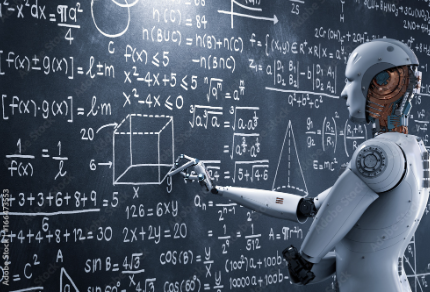Artificial Intelligence (AI) is revolutionizing every sector of our modern world, driving innovation, efficiency, and new opportunities. Whether in education, sports, e-commerce, banking, or oil and gas, AI’s impact is profound and far-reaching. Let’s delve into how AI is reshaping these diverse fields.
AI in Education: Personalizing Learning Experiences
AI in education is enhancing learning outcomes by offering personalized experiences. Adaptive learning platforms use AI algorithms to understand students’ individual needs and tailor content accordingly. This personalized approach helps educators identify areas where students need extra support and provides them with targeted resources.
Moreover, AI in education has opened up new possibilities for distance learning and virtual classrooms. AI-powered virtual tutors can assist students 24/7, providing instant feedback and explanations. This accessibility promotes continuous learning, even outside traditional classroom settings.
AI in Sports: Enhancing Performance and Fan Engagement
Sports are embracing AI to boost athlete performance and enhance fan engagement. In performance analytics, AI is used to track player movements, analyze techniques, and suggest improvements. This data-driven approach has revolutionized training regimens and scouting processes.
Beyond performance, AI in sports is transforming fan experiences. AI-powered chatbots and virtual assistants provide fans with real-time information, while predictive algorithms offer personalized content, such as team statistics and game highlights. AI’s ability to analyze vast amounts of data in real time allows for interactive and immersive experiences during live events.
AI in E-commerce: Personalizing Shopping and Streamlining Operations
E-commerce has been one of the biggest beneficiaries of AI, with applications ranging from personalized product recommendations to automated customer service. AI in e-commerce uses machine learning to analyze customer behavior and predict their preferences, leading to highly personalized shopping experiences.
AI-powered chatbots and virtual assistants are streamlining customer service by providing instant responses to common queries. In logistics, AI-driven automation is optimizing supply chains, reducing delivery times, and lowering costs. These efficiencies benefit both businesses and consumers.
AI in Banking: Enhancing Security and Customer Experience
In the banking sector, AI is crucial for enhancing security and customer experience. AI-driven fraud detection systems analyze transactions in real time, identifying unusual patterns and preventing fraudulent activities. This proactive approach improves security and builds trust with customers.
Additionally, AI in banking is reshaping customer interactions. Virtual assistants and chatbots offer quick responses to customer queries, allowing banks to provide 24/7 service. AI-driven personalization helps banks offer tailored financial products and services based on individual customer needs.
AI in Oil and Gas: Optimizing Operations and Reducing Risks
The oil and gas industry is leveraging AI to optimize operations and reduce risks. AI-driven predictive maintenance helps detect equipment failures before they occur, minimizing downtime and reducing repair costs. This technology is crucial for maintaining safety in an industry where equipment failures can be catastrophic.
AI in oil and gas is also used for reservoir analysis, helping companies identify optimal drilling locations. This improves efficiency and reduces environmental impact. Additionally, AI-driven robotics and automation are making field operations safer and more efficient.
Conclusion: The Ubiquity of AI
From education to oil and gas, AI’s transformative power is undeniable. Its ability to personalize experiences, optimize operations, and improve safety is driving innovation across industries. As AI continues to evolve, we can expect even more groundbreaking applications that will shape the future of technology and industry.
